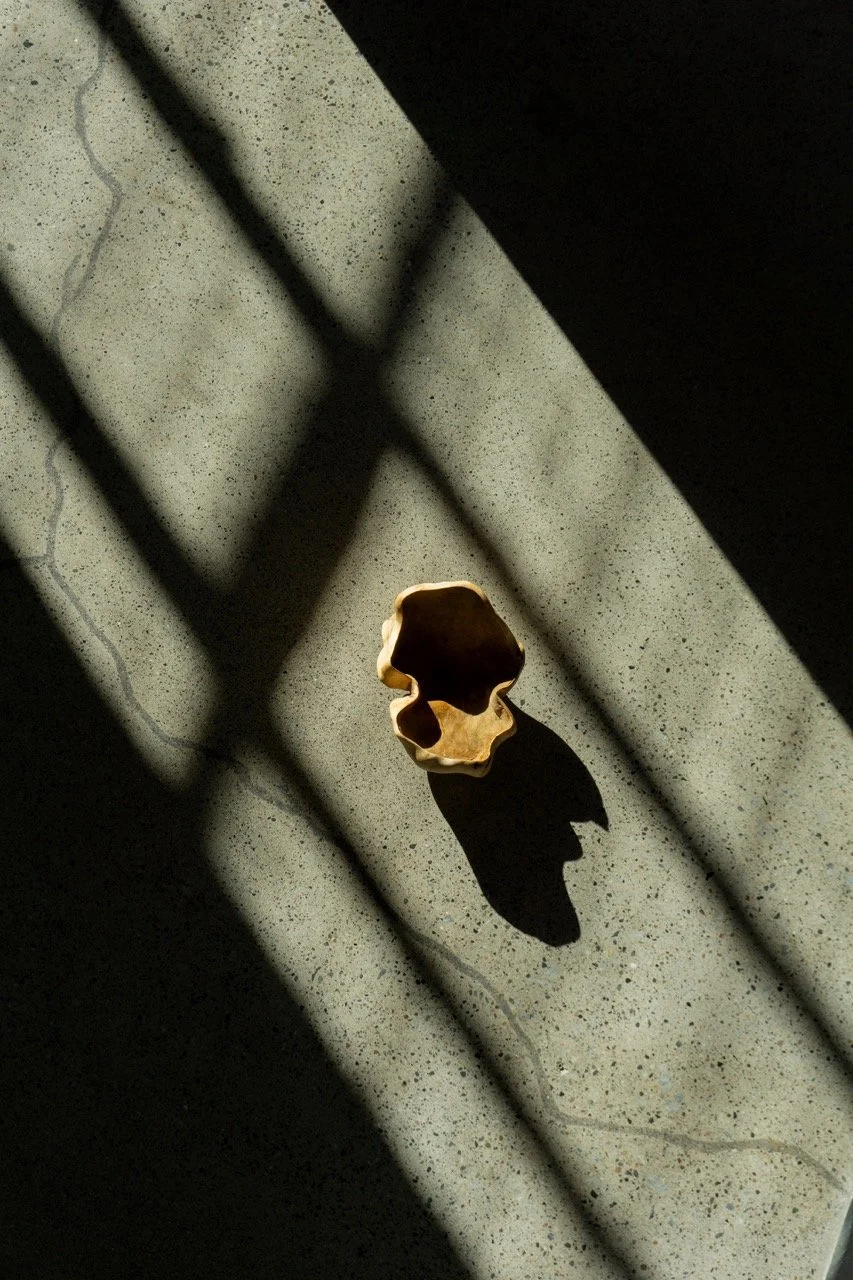Mari Koppanen & the Craft of Amadou
Bridging Tradition and Innovation
Fomes fomentarius, commonly known as hoof fungus, tinder fungus, or amadou, is not just any mushroom. This remarkable organism thrives on tree trunks across Europe, Asia, and North America, where it camouflages perfectly with the rough bark it grows upon. Beneath its rugged exterior lies a surprise—a soft, leather-like layer. This unique characteristic has made amadou a cherished material in human history, finding diverse applications in textiles, medicine, and even as a fire starter.
Extracted from the plentiful tinder mushrooms in the forests, amadou carries with it a narrative of human ingenuity and tradition. From crafting felt-like clothing to ornate decorations, its use was once a common skill across Central and Eastern Europe. Today, this cultural tradition continues in the small Transylvanian village of Corund, standing as a vibrant testament to the community's rich cultural heritage and steadfast identity.
Mari Koppanen, a Finnish designer and PhD candidate in Artistic Research at the Oslo National Academy of the Arts, has played a crucial role in preserving the ancient craft of amadou-making. Her journey began with a master’s project that immersed her in the vibrant culture of Corund, where she delved deeply into the complex art of amadou craftsmanship. Her research-oriented approach not only honours traditional techniques but also explores innovative material possibilities for the future.
“The craft is in danger of disappearing as the number of families practising it has reduced noticeably during the past decades”
Driven by a passion to rejuvenate amadou-making, Koppanen’s efforts go beyond mere aesthetic appreciation. She views amadou as a symbol of human creativity and resilience. With its eco-friendly qualities, amadou aligns seamlessly with Koppanen’s commitment to ethical, sustainable design practices, presenting a compelling alternative to animal leather due to its vegan and biodegradable nature. Her work highlights the integration of traditional crafts with modern design, making a significant cultural and environmental impact.
Mari Koppanen | Research with amadou
Koppanen's innovative material research includes the Fomes amadou seating design, which utilises Amadou's unique properties to upholster stylish furniture, blending traditional techniques with modern aesthetics. The Fomes range, featuring chairs and benches, emphasises amadou's organic beauty and utility, pushing the use of fungal materials in everyday items, and revitalising the ancient art of amadou-making for today's design world.
In a similar vein, her project Sensorial Bowls builds on the tactile qualities of amadou and birch burls to promote a hands-on exploration of these materials. By designing these bowls, Koppanen encourages a closer interaction with the natural textures of fungi and plants, reflecting on their essential roles within ecosystems. Here, the symbiotic relationship between the growth-promoting burl and the decay-facilitating polypore mushroom serves as a poignant reminder of nature’s intricate balance—where one force drives growth and the other facilitates decay, yet both are necessary for ecological harmony. This project continues Koppanen’s theme of blending tradition with innovative design, fostering a deeper appreciation and understanding of natural materials in our daily lives.
Sensorial Bowls highlight the haptic qualities of Amadou and birch burls, 2023
FOMES The stool's base are made from birch wood wrapped in amadou
The Kääpä+ project Research
In her latest venture, the Kääpä+ project, Koppanen has developed a groundbreaking amadou composite. By repurposing small amadou scraps into a biodegradable composite using form-pressing techniques, she harnesses the full potential of the material. The composite uses a non-toxic, compostable cellulose derivative as a binder. The Kääpä+ project, including innovative lamp designs, will debut at the 3daysofdesign event in Copenhagen in June 2024 and later at the Material Matters fair in London in September 2024, showcasing this sustainable material's applications in lighting design.
The Kääpä+ project Research
The Kääpä+ project Research - Lightings
Info
RESEARCH & DESIGN
Mari Koppanen
PHOTOGRAPHY
Courtesy of Mari Koppanen
EXHIBITIONS
3daysofdesign - Copenhagen, June 2024
WORDS
Nina Zulian
SOURCES








